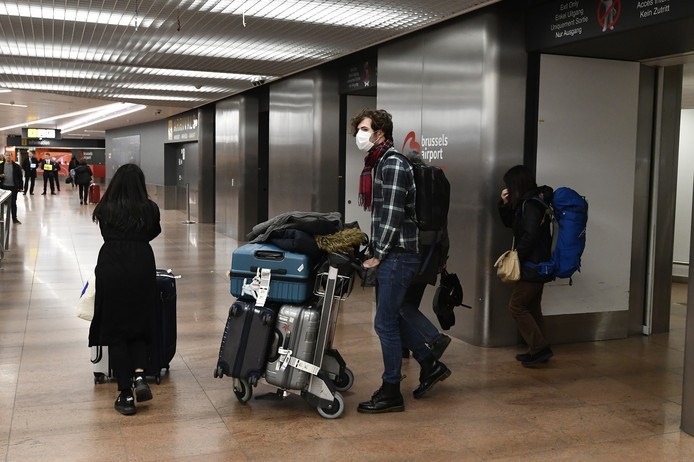Should we all be required to produce a ‘vaccine passport’ — proving that we have been vaccinated against Covid-19 — before being allowed to enter a cafe, travel abroad, or work in a high-risk job?
Some governments are taking tentative steps in this direction. Belgium may require that its soldiers be vaccinated before travelling abroad on peace-keeping missions. In other countries, companies are introducing requirements of their own. Air New Zealand will begin trialling vaccine passports in April.
Many governments have been reluctant to go down this route. Yet the case for vaccine passports is clear: they could allow us to end some lockdown and distancing measures for vaccinated individuals sooner than it would be safe to end them for everyone. This would be a large benefit, since these measures involve severe interference with freedom of movement, and we know that they have serious economic and psychological costs.
There are currently good scientific objections to vaccine passports: we don’t know how much protection vaccination provides against transmission. There are also legitimate worries about unintended social consequences. Vaccine passports might, for instance, undermine the feeling that ‘we’re all in this together’, and thereby reduce the willingness of unvaccinated individuals to comply with social restrictions. But suppose these problems could be overcome. Would there be a basic moral objection to vaccine passports?
Pressure to Vaccinate
Many people will feel significant pressure to vaccinate if vaccine passports are introduced, and critics may claim that we should never pressure people into undergoing medical interventions.
But what’s the greater evil: creating pressure for some to undergo unwanted vaccinations, or keeping vaccinated individuals under stringent and harmful social restrictions, even if (as the science may eventually show) they pose minimal risk of infecting others. In terms of health side-effects, social restrictions look worse. We know that they have significant negative effects on mental health for many, while the best evidence suggests that vaccination is very safe.
‘But what about human rights?’, some may say. ‘Don’t we have a right not to be forced into unwanted medical interventions?’ Yes. But vaccine passports don’t literally force people into vaccination. Rather they offer people a simple choice: reduce your risk to others by being vaccinated, or reduce your risk to others by complying with social restrictions. This is the sort of choice that we already pose in other areas.
Consider vision requirements for driving. Some people are deemed unsafe to drive because their vision is too poor. Some of those people could meet the vision requirements by undergoing medical treatments, like cataract surgery. Those people face the choice ‘accept the treatment, or forego driving’. Most of us think that posing people with this choice is acceptable. Vaccine passport policies would pose a similar choice, albeit on a much larger scale.
Discrimination
Others may worry that vaccine passports are discriminatory. Banning unvaccinated people from, say, working in care homes would be like banning women from working as pilots. But there’s an important difference here. Being a woman is not directly relevant to whether you can safely fly an aeroplane; being unvaccinated is, we may learn, directly relevant to whether you can safely work in a care home. Preventing unvaccinated individuals from working in care homes would be more like preventing people who are physically or mentally unwell from working as pilots, which is something we already do.
Unfairness
But behind the concern about discrimination, there may be a broader worry about fairness. Some people cannot be vaccinated. At present, most people haven’t yet been offered a vaccine. Others have medical conditions that would make vaccination dangerous. Vaccine passports would result in these people facing more stringent social restrictions than others, and through no fault of their own. This seems unfair.
However, this problem could be largely avoided by introducing vaccine passports only once vaccines are widely available, and by exempting those for whom vaccination would be dangerous from the need to prove their vaccination status. Yet even in the meantime, it’s not obvious that worries about unfairness are decisive. Suppose, hypothetically, we discovered that people under 25 very rarely transmit the coronavirus, so that there’s no good epidemiological reason to restrict their social contact. Would we nevertheless keep them under social restrictions out of a concern for fairness to the over 25s? It seems doubtful that we would, or should.
Bear in mind also that the negative effects of social restrictions have not been fairly distributed. Is it fair that my job can easily be moved online, whereas the job of a massage therapist cannot? Clearly not. If we could safely allow some massage therapists to return to work by requiring that both they and their clients be vaccinated first, this would help to diminish the unfairness of the lockdown.
Social Exclusion
Closely related to the charges of discrimination and unfairness is another worry: relaxing social restrictions only for vaccinated people might result in the further social exclusion of already disadvantaged groups, many of which have lower rates of vaccine uptake.
This is a serious and legitimate concern, but it may be possible to overcome it through intensive outreach and education programmes designed to increase vaccination uptake in these groups. If such programmes fail, we will need to tightly regulate the use of vaccine passports to ensure that they do not exacerbate exclusion. One option would be to limit the range of settings in which vaccine passports can be used.
If vaccine passports were introduced by many employers, unvaccinated people might end up being barred from large parts of the economy. Social exclusion would be severe. But it’s less clear that there would be a problem if vaccine passports were limited to the highest risk jobs and international travel, say.
Concerns about social exclusion may well give us reasons to tightly limit the use of vaccine passports, but they don’t justify ruling out their use altogether.


